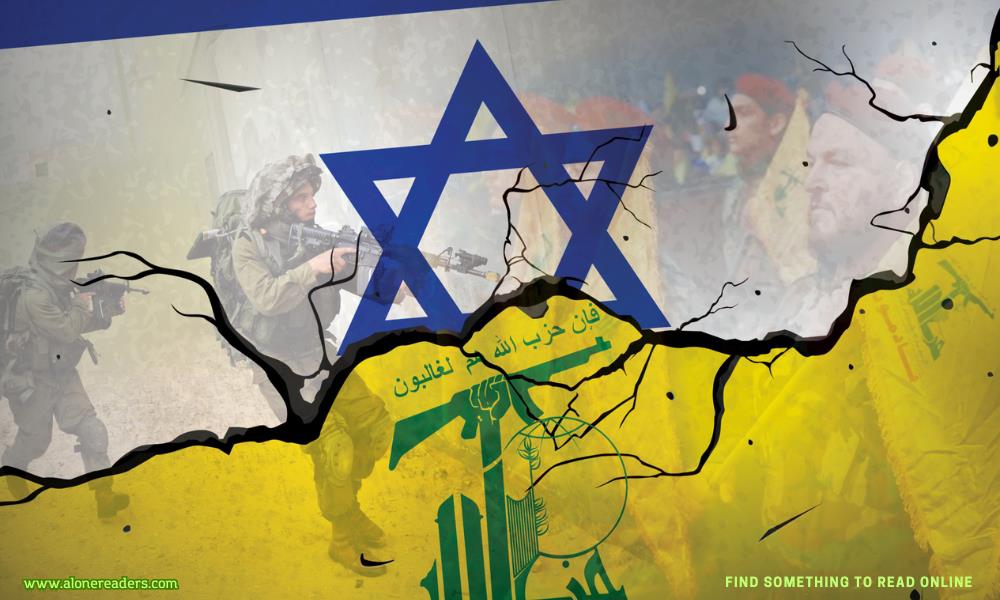
The Middle East, a region fraught with historical tensions, has once again found itself at the brink of potential large-scale conflict as heavy exchanges of fire between Israel and Lebanon’s Hezbollah raise alarm bells globally. This escalation, which threatens to spiral into a full-scale war, has prompted international concern, with observers watching closely to see if these incidents signal the start of a broader regional conflict.
The recent hostilities between Israel and Hezbollah have their roots in a long-standing animosity, punctuated by sporadic flare-ups over the years. The current bout of violence began after a series of events that heightened tensions on both sides. A significant trigger was the Israeli airstrikes targeting Hezbollah positions in southern Lebanon, which were in response to rocket fire from Lebanese territory into northern Israel. Hezbollah, a powerful Shiite militant group and political party backed by Iran, retaliated with a barrage of rockets and missiles, leading to a heavy exchange of fire that saw civilian areas on both sides being caught in the crossfire.
This latest exchange of fire is among the most intense since the 2006 war between Israel and Hezbollah, which lasted for 34 days and caused significant devastation in Lebanon while also impacting northern Israel. The 2006 war ended in a United Nations-brokered ceasefire, but tensions have simmered ever since, with both sides accusing each other of violating the ceasefire terms.
The possibility of a full-scale war between Israel and Hezbollah raises several concerns, both regionally and internationally. The stakes are incredibly high, given the complex web of alliances and enmities in the Middle East. A war could potentially draw in other regional powers, turning a bilateral conflict into a broader regional war.
For Israel, the stakes are twofold. Firstly, there is the immediate threat posed by Hezbollah’s military capabilities, which have significantly improved since 2006. Hezbollah’s arsenal is believed to include advanced missiles and drones, which could inflict considerable damage on Israeli cities and infrastructure. Secondly, there is the broader strategic concern of countering Iran’s influence in the region. Hezbollah is a key proxy for Iran, and a war with Hezbollah would be seen as part of a larger struggle between Israel and Iran for regional dominance.
For Hezbollah, the stakes are also high. While the group has grown stronger militarily, a full-scale war with Israel would be immensely costly. Lebanon, already facing severe economic difficulties and political instability, could be pushed to the brink of collapse by another devastating conflict. Additionally, Hezbollah’s involvement in the Syrian Civil War has stretched its resources, and a war with Israel could weaken the group’s standing both domestically and regionally.
While the exchange of fire between Israel and Hezbollah is certainly alarming, whether it will lead to a full-scale war remains uncertain. Several factors will likely determine the outcome:
International Diplomacy: The international community, particularly the United Nations, the United States, and European countries, is actively working to de-escalate the situation. Diplomatic efforts are underway to prevent the conflict from spiraling out of control, with calls for restraint on both sides. However, the success of these efforts will depend on the willingness of Israel and Hezbollah to pull back from the brink.
Regional Dynamics: The broader regional dynamics, particularly the role of Iran, will also play a crucial role. Iran’s support for Hezbollah is a significant factor in the conflict, and Tehran’s response to the situation could either escalate or help de-escalate tensions. If Iran chooses to increase its support for Hezbollah, the chances of a full-scale war could rise.
Military Calculations: Both Israel and Hezbollah are likely weighing the military costs and benefits of escalating the conflict. For Israel, the prospect of a prolonged war with Hezbollah, which would involve heavy casualties and economic costs, may be a deterrent. Similarly, Hezbollah may seek to avoid a war that could lead to widespread destruction in Lebanon and weaken its own position.
Public Opinion: Public opinion on both sides will also be a factor. In Israel, there is significant public support for a strong response to Hezbollah’s provocations, but there is also wariness about the costs of another prolonged conflict. In Lebanon, the public is increasingly frustrated with the economic and political crisis, and another war could exacerbate these frustrations, potentially leading to backlash against Hezbollah.
If the conflict does escalate into a full-scale war, the consequences could be dire. Lebanon, already on the edge due to economic collapse, could face further devastation, with infrastructure destroyed and thousands displaced. The Lebanese government, already weak, could struggle to maintain control, leading to further instability.
For Israel, a war with Hezbollah would likely involve heavy missile attacks on its northern cities, leading to significant civilian casualties and economic disruption. The Israeli military would also face the challenge of dismantling Hezbollah’s extensive military infrastructure in southern Lebanon, a task that would likely involve a costly ground invasion.
Regionally, a full-scale war could have broader implications. It could destabilize neighboring countries, particularly Syria, and potentially draw in other regional powers, such as Iran and Saudi Arabia. The conflict could also impact global energy markets, given the proximity of Lebanon and Israel to major oil-producing regions.
Conclusion
The heavy exchange of fire between Israel and Hezbollah is a stark reminder of the fragile state of peace in the Middle East. While both sides have reasons to avoid a full-scale war, the situation remains volatile, with the potential for further escalation. The coming days and weeks will be critical in determining whether this conflict remains limited or spirals into a broader regional war.
The international community, particularly key powers like the United States and European countries, must continue to press for de-escalation and support diplomatic efforts to prevent a catastrophic war. For now, the region holds its breath, hoping that cooler heads will prevail and that another devastating conflict can be avoided.